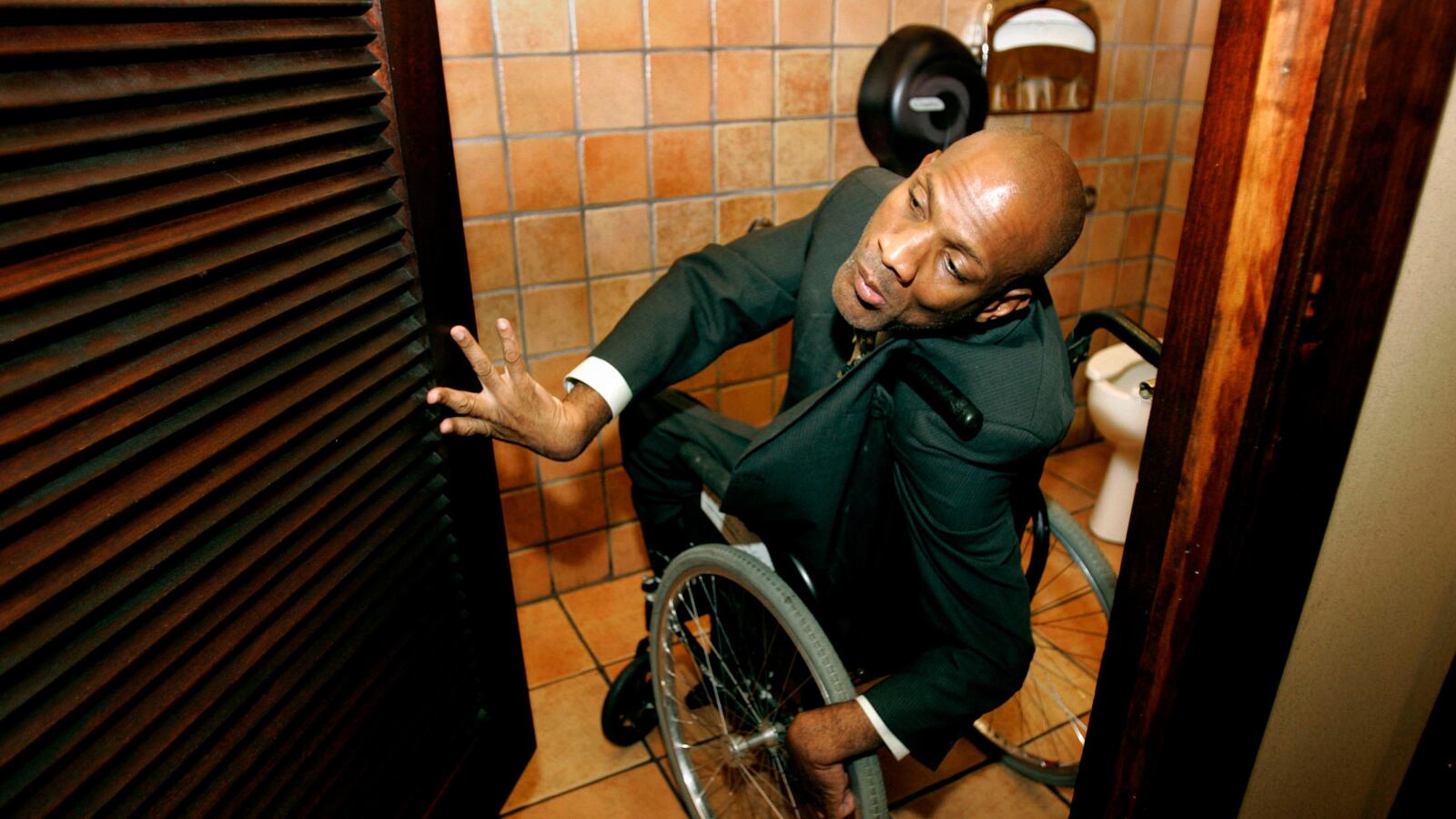In recent weeks, public restrooms have been a highly discussed subject. Newspaper headlines, websites, talk shows, even political debates have raised the question of bathroom accessibility thanks to the passing of North Carolina’s HB2 law, known colloquially as the “bathroom bill,” which requires that public restrooms be divided by gender. Persons may only use the restroom that matches what appears on their birth certificate.
The main opponents of this bill are the LGBT community and its allies, who argue an undue burden on trans persons who do not identify with the gender listed on their birth certificate. While many have been living opposite the gender of their birth, this new law restricts them from using public facilities that correlate to their identifying gender. Trans women are mandated to use the men’s room and trans men the women’s room, regardless of physical appearance. But there are no provisions within the law for enforcement, nor consequences stated should a person violate the law.
But in addition to the obvious concerns of the LGBT community, there are very real implications for persons with disabilities. Although the bill does list several exemptions, which include custodial staff, medical personnel, and caregivers, the wording of the law has disability advocacy organizations scrambling to support their clients in the day-to-day implications on their lives, regardless of whether or not they are also trans.
Julia Sain, executive director of Disability Rights & Resources, located in Charlotte, North Carolina, where the city ordinance that inspired HB2 was first passed, is frustrated greatly by the bill. “This creates more isolation and concern for persons with disabilities, and if bathrooms had stalls and everybody has a stall, this wouldn’t be an issue,” she said.
Speculating further on the bill itself, Sain wonders about the timing of such a law. “Any law that cannot be enforced is only politically-based. It was done strictly for political reasons ahead of the presidential election,” she said.
There is an exception noted in the bill: “To accompany a student needing assistance when the assisting individual is an employee or authorized volunteer of the local board of education or the student’s parent or authorized caregiver.”
The wording of the bill, however, requires that the person being assisted in the restroom “match” the gender of the designated facility. Corye Dunn, director of Public Policy for Disability Rights NC, a nonprofit organization in Raleigh, North Carolina, offers an example.
“Let’s say a 12-year-old boy needs assistance in a public restroom in a state-operated facility such as [a museum], and his female caregiver provides assistance. She may enter the men’s room and assist him, but she may not bring him into the ladies’ room.”
Josh Holmes is the father of four children. His youngest daughter, Maura, requires assistance to use the restroom. As she is over the age of 12, the law requires Holmes to bring her into the ladies’ room if no family restroom is available.
Outside of the state of North Carolina, however, he brings her into the men’s room. “I can let her go into the women’s room by herself, or I can drag her into the men’s. When I do let her go into the women’s by herself, I don’t have any idea how long she’s going to be, if she’s going to use the toilet or not, and my worst of all possible fears is that she’s in there forever and then comes out having soiled herself.”
Holmes is flummoxed by the new law, which makes his bringing her into the men’s room illegal while allowing him, as a male, to enter the women’s room to accompany his daughter. “I’m sure that the ladies there would love to have me in their bathroom,” he joked.
As the law is fairly new, there has not yet been a specific instance in which a person with disabilities has been legally challenged, although according to Dunn, several clients have been affected. “The law has opened them up to really inappropriate judgments by people with and without actual authority,” she said.
Dunn is also frustrated by the implications of this bill for the clients of Disability Rights NC and other persons with disabilities who reside in North Carolina. “Before the law was in place, people with disabilities made the decision that makes sense to them. Now, their choices are constrained. People with disabilities should be able to make reasonable choices,” she said.
And in addition to the concerns over bathroom safety and accessibility for people with disabilities, other aspects of North Carolina Bill HB2 are troubling to both advocacy groups.
Referring to SECTION 2.2 of the bill, which states, “A county may not require a private contractor under this section to abide by regulations or controls on the contractor’s employment practices or mandate or prohibit the provision of goods, services, or accommodations to any member of the public as a condition of bidding on a contract or a qualification-based selection, except as otherwise required by State law,” Sain worries that the new bill provides precedent for even more discrimination.
“Reading deeper into the law is the scary part—equal employment is being restricted. The most base fears of people are being addressed,” she said.
Because of the ambiguity of the bill, as well as an inability to enforce most of its provisions, both Sain and Dunn are optimistic that the bill will not last under the scrutiny of time and practical application.
When asked if there was a way that agencies such as Disability Rights NC might work with the legislative body in order to improve upon the existing bill, Dunn said, “There is no part of this law that helps our clients. We wish to preserve no part of it. This law solves a problem that didn’t exist.”






